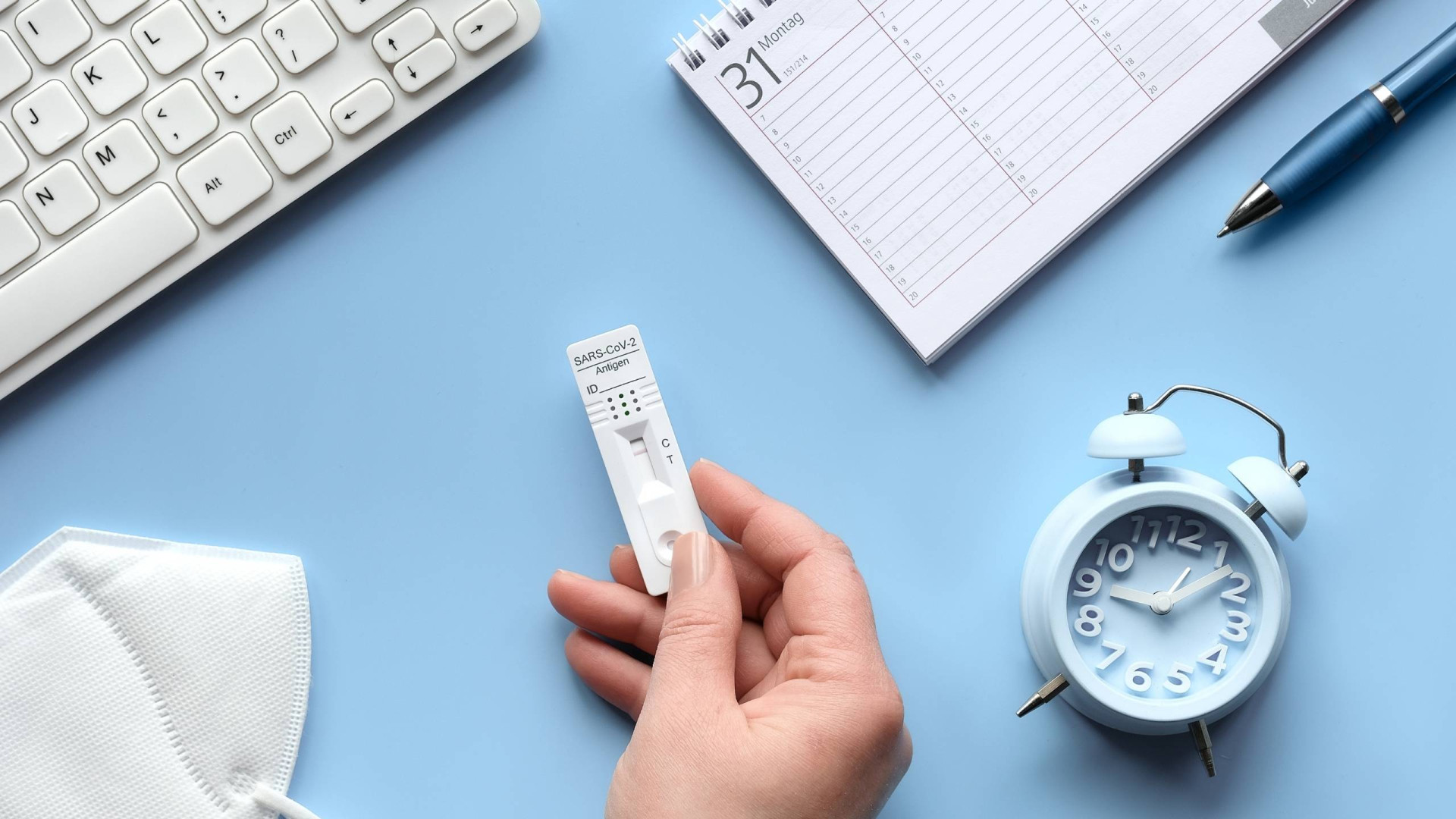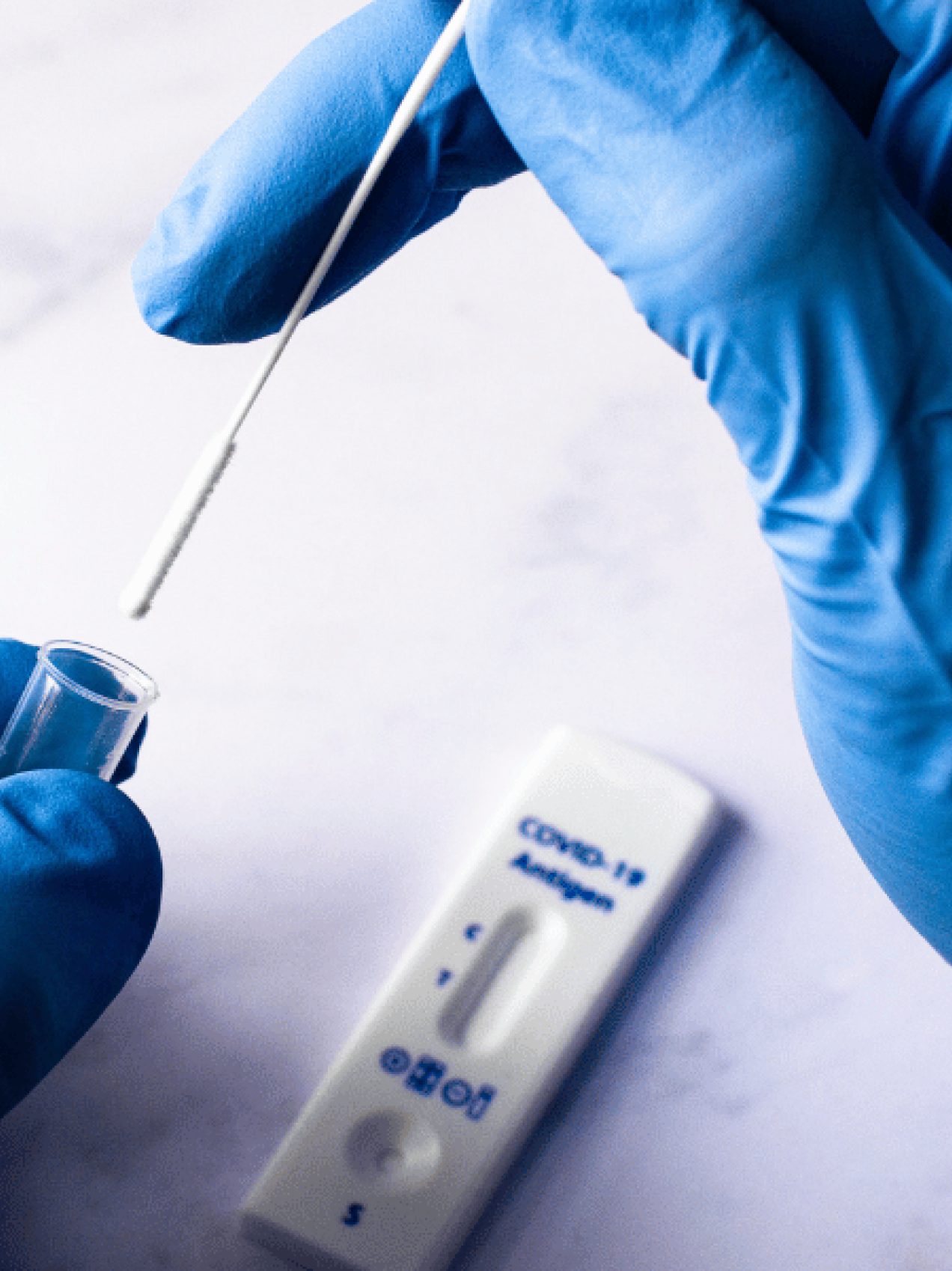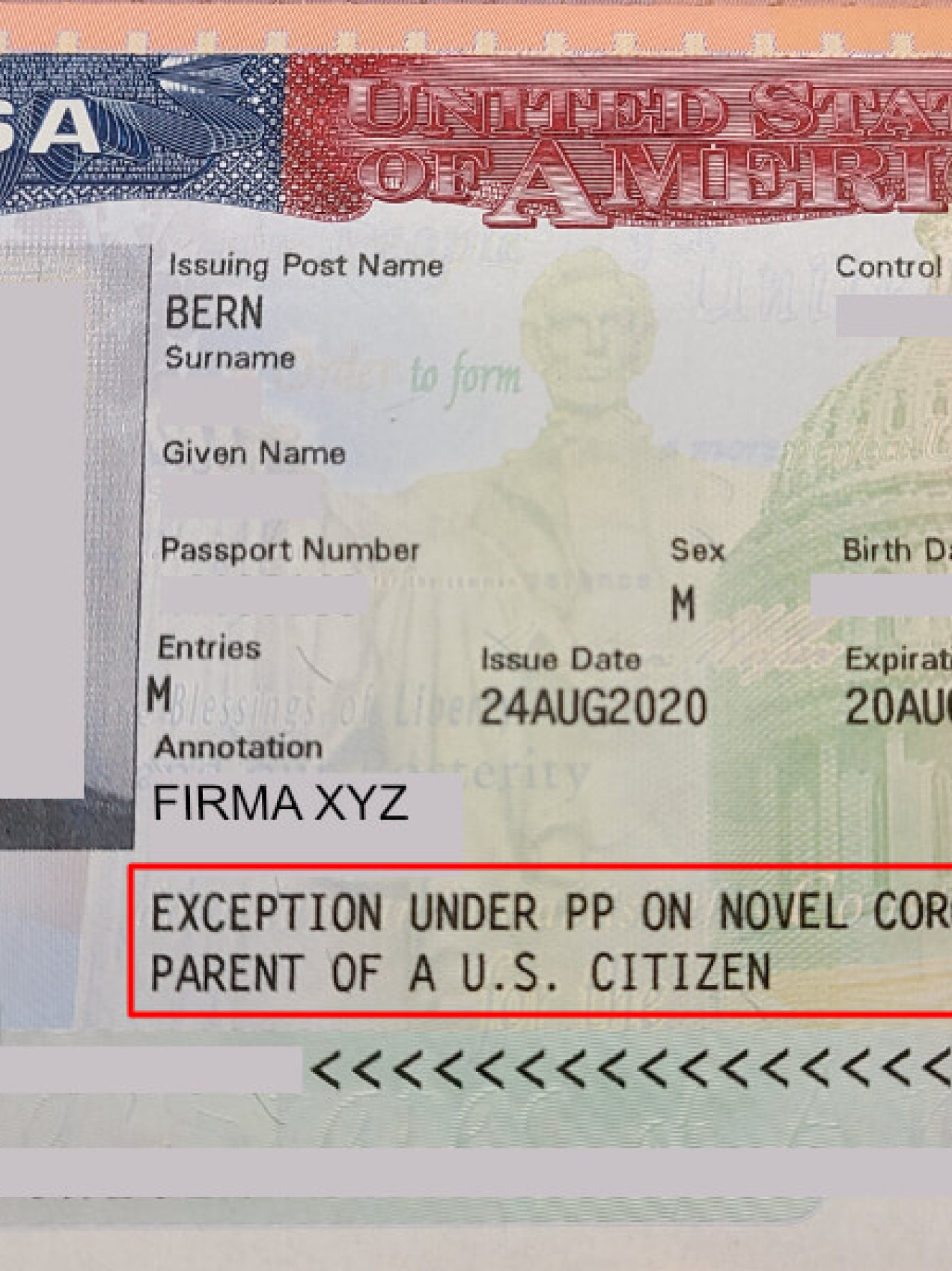Updated on 30.09.2022
Since November 8, 2021 the U.S. has eased entry requirements and travel is possible again with compliance of a variety of COVID-19 and sanitary guidelines. Read below to learn about the implications for travelers, visa applicants, and visa holders when entering the United Staes now.
Share article:

In the fight against the spread of the coronavirus and to protect the US labor market, the USA had taken strong measures and imposed an entry ban for the United States from March 13, 2020 to November 7, 2021. Since May 12, 2023, all pandemic-related entry restrictions have been lifted and travel to the USA is once again possible without proof of COVID-19 vaccination or test possible.
NOTE: This article will not be updated. You can find the latest information in our news section.
On October 25, 2021, US President Joe Biden signed the decree "A Proclamation on Advancing the Safe Resumption of Global Travel During the COVID-19 Pandemic" and with this Presidential Proclamation 10294 replaces the Corona Travel Ban with new uniform rules for all US travelers worldwide from November 8, 2021.
In accordance with the Presidential Proclamation, three regulations issued by the U.S. Centers for Disease Control and Prevention (CDC), which is part of the U.S. Department of Health and Human Services (U.S Department of Health and Human Services) is subordinate to the law in force:
Since November 8, 2021, only people who have been fully vaccinated against COVID-19 are allowed to enter the United States (with very few exceptions).
All international travelers who can present a complete COVID-19 vaccination certificate will benefit from the travel restrictions – regardless of whether they are traveling on a US visa or under the Visa Waiver Program with an ESTA authorization wish to enter the country.
This means that tourist trips, family visits, transit trips, etc. with a visa or ESTA from the former travel ban countries (Brazil, China, India, Iran, Ireland, Schengen area, United Kingdom) are possible again - corona vaccination and provided.
The US embassies and consulates of the formerly affected travel ban countries have, depending on their capacity, gradually resumed issuing visas for all US visa categories.
Tip: All those who wish to travel to the USA visa-free with ESTA should check whether their ESTA travel authorization is still valid before departure, as some ESTA authorizations have been revoked due to the travel ban.
Since November 8, 2021, entry by land via Mexico or Canada has also been possible for foreign persons fully vaccinated against COVID-19 possible again - also for Non-Essential Purposes (e.g. tourist entries).
The only exceptions to this rule are currently children under the age of 18, US citizens and green card holders.
The official vaccination status must be confirmed at the border in accordance with the standards of the US health authority CDCas well as a verbal confirmation of the reason for the trip and the accuracy of the information.
This means that entry into the United States - regardless of the reason for entry - will then only be possible for fully COVID-19 vaccinated foreign nationals traveling overland to the USA.
First of all, persons are considered fully vaccinated
This means that entry is possible from the 15th day after the final dose.
Attention: According to the regulations of the US Food and Drug Administration (Centers for Disease Control and Prevention, CDC), COVID-19 recoveries with only one vaccination of a 2-dose vaccine are considered not fully vaccinated. While people who have recovered from corona in several European countries (including Germany) only receive a single dose of vaccine after infection and are considered fully vaccinated with just one dose of vaccine, this practice is not recognized by the CDC. As a result, these individuals will not be able to travel unless they qualify for another exemption.
According to the US Department of Health and Human Services (Centers for Disease Control and Prevention, CDC), only the data provided by the U.S. Food and Drug Administration FDA for short, as well as those on the emergency list of the World Health Organization, WHO for short, (= WHO Emergency Use Listing (EUL for short). These currently include
Click here for the list of vaccines approved by the CDC.
According to the US health authority CDC persons with cross vaccinations are considered fully vaccinated two weeks after receiving the last dose if they have received a vaccine approved by the FDA / WHO mentioned and the second vaccination was given no earlier than 17 days after the first dose (e.g. AstraZeneca / BioNTech).
Proof that the COVID-19 vaccination has been completed must be before departure e.g. at check-in or via the respective airline app. This means that checking the vaccination documentation is the responsibility of the Airlines.
The U.S. Department of Health and Human Services has listed exactly which documents are considered proof of vaccination (= Verifiable Vaccination Credential) apply and which proofs are not accepted.
Proof should preferably and usually be provided via a digital vaccination certificate with a QR code (e.g. European COVID-19 vaccination certificate). However, other documents in paper form, such as an official vaccination card or an official certificate (e.g. yellow vaccination card, CDC vaccination certificate, etc.), can also be used as proof.
This proof of vaccination (digital or paper form) must in any case be issued by an official source/authority and contain the name and date of birth of the traveler(s) as well as the vaccine product and the date of administration for all doses received by the traveler(s).
Recommendation: We strongly advise you to check with the airline in advance which documents will be accepted in your specific case. If your vaccination documents are written in a language other than English, we recommend that you check with the airline or aircraft provider before you travel whether a translation is required.
As the airlines are responsible for checking proof of vaccination, according to the current state of knowledge, no proof of vaccination is required as part of the visa application process. At the US border, however, there may be routine checks by the US Customs and Border Protection (CBP). It is therefore advisable to have the proof ready for border control.
On October 25, 2021, the US Centers for Disease Control and Prevention (CDC) issued the new order Requirement for Airlines and Operators to Collect Contact Information for All Passengers Arriving into the United States. This means that airlines and other aircraft operators are now obliged to collect contact information of US travelers (2 years and older) prior to their arrival in the USA from abroad, to keep it on file for 30 days and to transmit the information to the CDC upon request. The so-called Contact tracing system for contact tracing has been introduced for all travelers regardless of vaccination status.

The following information is required from travelers to the USA prior to departure:
You can also use an online tool from the CDC to find out which COVID-19 requirements apply when entering the country in your individual case.
The local quarantine regulations and hygiene measures - i.e. after entry into the United States - differ since November 8, 2021 depending on the vaccination status of the persons traveling:
| Vaccinated | Recovered | Unvaccinated | |
| Behavior in case of contact with a COVID-19 positive person |
|
|
|
|---|
Important: The regular immigration regulations continue to apply, such as the presentation of a valid ESTA authorization or a valid US visa upon entry. In addition, the requirements of the respective Foreign Office must be observed when returning from the US to your home country. If you have specific questions about your visa case, please do not hesitate to contact our visa specialists.
From March 13, 2020 to November 7, 2021, entry into the USA from certain regions was increasingly restricted as a result of the COVID-19 pandemic (Presidential Proclamations 9984, 9992, 9993, 9996 and 10041). As a result, foreign travelers to the USA from numerous countries were no longer able to enter the United States.
From March 13, 2020 to November 7, 2021, entry into the USA from certain regions was increasingly restricted as a result of the COVID-19 pandemic (Presidential Proclamations 9984, 9992, 9993, 9996 and 10041). As a result, foreign travelers to the USA from numerous countries were no longer able to enter the United States.

Since the beginning of the COVID-19 pandemic, the US authorities have been working in a more or less restricted manner and in some cases numerous field offices around the world have been closed for several months. Below we provide an overview of which applications are currently possible or are difficult or suspended until further notice.
In 2023, the situation at most US embassies and consulates worldwide has improved. In Germany in particular, the appointment situation is back to normal, albeit with slightly longer waiting times than before the pandemic, depending on the visa category.
Which US consulates are open, in what form and to what extent, which visa categories or applicants are processed and under what conditions, varies from country to country.
The available appointment capacities have been considerably reduced since the outbreak of the Corona crisis and there is a backlog of certain visa applications. Whether appointments are available in your home country and for which visa categories depends on several factors and is subject to constant change (including local pandemic situation, local conditions and restrictions). Therefore, it is advisable to regularly check your visa profile for bookable appointments and to check the website of the nearest U.S. embassy or consulate for the current application status.
Applicants worldwide should continue to be prepared for the possibility that appointments already booked at the US Consulate may be canceled again by e-mail and / or text message and further delays may occur.
At the same time, we will of course keep our customers informed of any further appointment cancellations.
In addition, changes to appointments are free of charge and visa fees already paid or the proof of payment for persons who have not been able to keep an appointment since March 2020 due to the pandemic and the associated closure of US consulates are exceptionally valid until September 30, 2023 (instead of for one year) in the country in which the fee was paid. In some countries (e.g. Argentina, Brazil, Canada, India, Mexico, etc.), the one-year expiry period was extended due to the effects of the COVID-19 pandemic as part of a Visa Fee Validity Extension. This must be checked or enquired about individually depending on the country.
You should also ask the US consulate in your home country about the safety regulations that apply during the interviews. The US embassy and the US consulates in Germany have implemented appropriate hygiene and social distancing rules. Applicants (except children under the age of six and persons who cannot wear a mask) are required to wear a medical mask. However, there is no testing requirement.
The services previously offered to US citizens and emergency services will continue to be offered, provided the respective US representations are able to do so. All applicants who urgently need to travel to the United States can seek an emergency appointment as usual.
We will of course continue to keep you up to date with the latest developments. Stay healthy.
Date:
Wir und unsere Partner nutzen Cookies, um personenbezogene Daten wie z.B. Browsing-Daten zu speichern und abzurufen, um z.B. Inhalte und Werbung bereitzustellen und zu personalisieren sowie die Verwendung der Website zu analysieren und das Benutzererlebnis zu verbessern. Sie erfahren mehr über die Zwecke, für welche wir und unsere Partner Cookies einsetzen, wenn Sie unten auf den Button „Cookie Einstellungen“ klicken. Hier können sämtliche Einstellungen auch geändert werden. Nachträglich kann man jederzeit seine Cookie-Auswahl überdenken oder seine Einwilligung widerrufen, indem man auf den Link zu den Cookie-Einstellungen im Footer unserer Webseite klickt. Beachten Sie bitte, dass das Blockieren einiger Cookie-Typen unsere Möglichkeiten zur Bereitstellung von auf Ihre Interessen zugeschnittenen Inhalten haben kann oder einige Funktionen der Webseite nur eingeschränkt zur Verfügung stehen.
Durch klicken auf “Alle Cookies akzeptieren” stimmen Sie unserer Nutzung und der Weitergabe Ihrer Daten an unsere Partner zu.